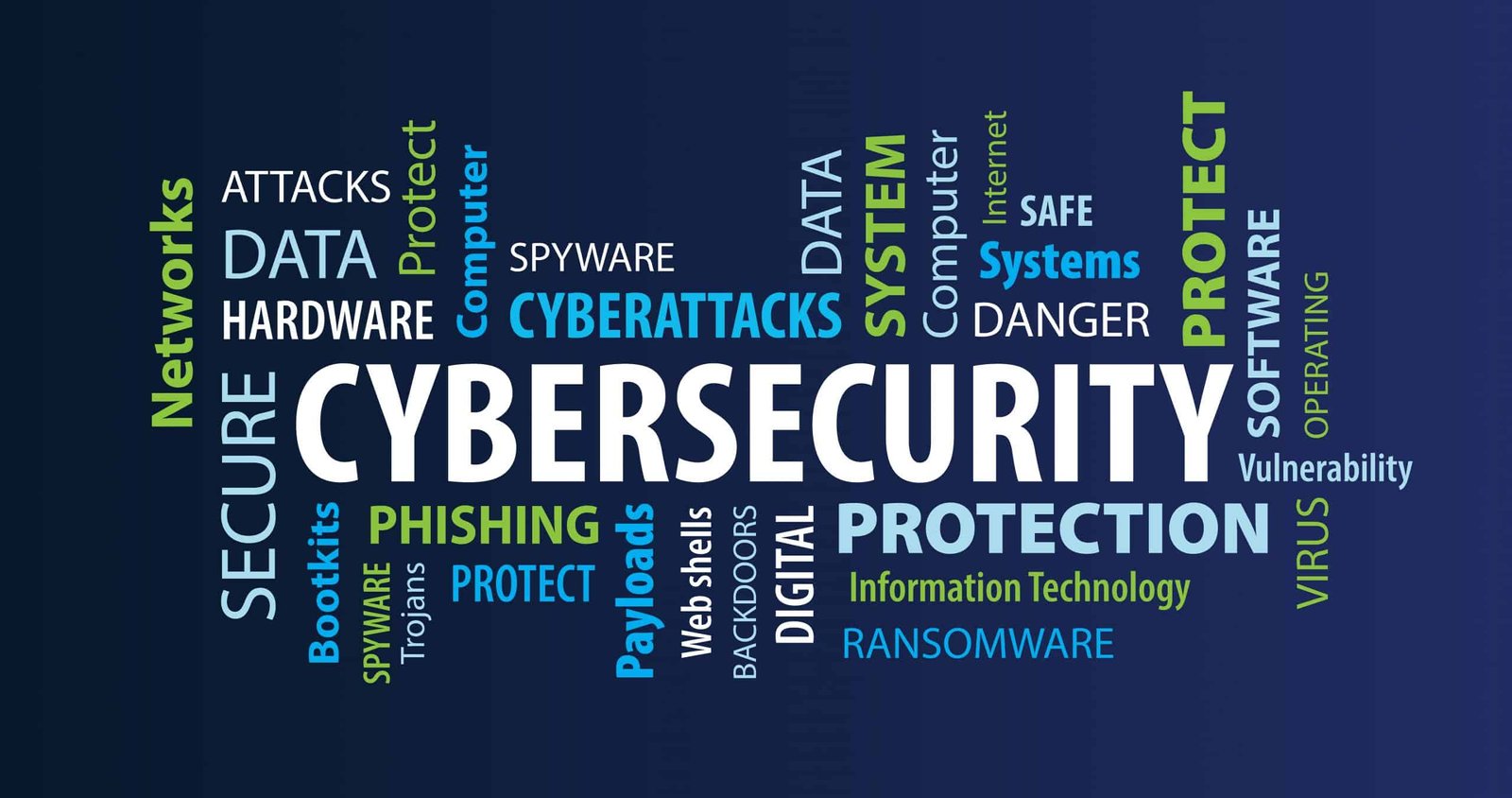Course name: University Undergraduate Level 5 Diploma in Cyber Security (year 2)
No. of units:
DSC01 to DSC04
Qualification:
Level 5 Diploma in Cyber Security - 603/4139/7
Course option
£4,500/ £6,900 / £7,500
About This Course
- Understand key cryptographic principles and modes
- Understand the standards, regulations and laws that apply to business and government organisations in relation to encryption
- Understand the core principles of digital investigations
- Apply the types of tools that support professional digital investigations at a strategic level
- Plan for an investigations and forensics teams
- Understand the physical and human resources required to manage a major suspected cyber security incident
- Apply Business Continuity Management to major incident planning and response
- Understand the role senior leaders and strategic leadership
- Evaluate the management streams and performance monitoring mechanisms that relate to information security
- Understand how data protection legislation impacts considerations of strategy-setting and strategic leadership
Examples of University Progression
- University of Sunderland – On Campus
- Anglia Ruskin University
- Coventry University
- Level 4 Diploma in Cyber Security Management and Operations.
- university for University’s entry level (Year 2)
- Employment in an associated profession.

Entry Requirements
- Learners who possess qualifications at Level 4 and/or;
- Learners who have some technical and risk management work experience in a computing or
security business environment and demonstrate ambition with clear career goals; - Learners who possess a Level 5 qualification in another discipline and want to develop their
careers in cyber security and/or risk management.
Diploma in Cyber Security is a Level 4 Qualification made up of 6 units equating to 120 credits. All units are 20 credits in value. Each 20-credit unit approximates to a TQT of 200 hours incorporating 120 hours of GLH. 120 credits equate to 1200 hours of TQT.
The qualification will:
- advanced levels of higher education learning
- prepare learners for employment; and
- support a range of senior IT and Digital, Data and Security roles in the workplace.
Awarding Body

Qualification
Qualification Numbers: Level 5 Diploma in Cyber Security - 603/4139/7

Course Details
The process of encrypting and decrypting information forms the basis of much computer, device and network security. Cryptography is designed and used to protect the confidentiality, integrity and authenticity of information. From the very beginnings of computing, and throughout the industry’s evolution, the establishment of policies, guidelines and laws has shaped the disciplines of information security and organisational resilience in profound and, often, unintended, ways. In this unit learners will be introduced to the concept and history of cryptography, and its subdisciplines (including cryptology), and how cyber-enabled networks and devices have their communications security underpinned by cryptographic methods and sector standards. Learners will explore methods of attack, including side-channel, additional encryption methods and escrow principles and key. Learners will look at how businesses can deploy encryption to enhance their information security approaches. Learners will develop an understanding of security technical and generic management and leadership teaching. Much of this teaching will be particularly relevant to learners wishing to move into more advanced Information Security Management technical qualifications, including the CompTIA Security + accreditation and the Cyber Security industry gold standard: The Certified Information Systems Security Professional (CISSP).
This unit describes and explains how to conduct investigations with cyber-enabled equipment, including on public-internet-facing networks, or other network environments. Much evidence is lost or ruled inadmissible within courts and tribunal environments because it has been mishandled and corrupted (or could have been) by investigators, or those with a perceived chain of custody over the data. Moreover, in a planet of several billion cyber-enabled devices, but few qualified cyber investigators, it is now the case that many organisations have to manage part or all of a cyber incident investigation, because the national CERT or police/security agencies are otherwise prioritised. In this unit learners will examine the requirements for digital investigations including team formations and tools, understanding the prospects of recovering information, gathering evidential data (including from mobile and IoT devices), safeguarding evidential integrity, as well as the complexity and challenges of storing and presenting evidence within legal environments. Learners will develop an understanding of security technical and generic management and leadership teaching. Much of this teaching will be particularly relevant to learners wishing to move into more advanced Information Security Management technical qualifications, including the CompTIA Security + accreditation and the cyber security industry gold standard: The Certified Information Systems Security Professional (CISSP).
The professional and lawful response to managing an incident can be the difference between company survival or otherwise. Poor responses to major incidents, including mega data breaches, have significantly damaged organisational reputations and financial performance.
Significantly mismanaging a cyber incident can result in catastrophic personal and organisational consequences. Such business ‘impacts’ are covered in-depth within our Threat and Risk units at Levels 2, 3 and 4. and will be explored during this Level 5 unit as part of the contextual case-study learning, and isomorphic reflections, that are central to this unit. In this unit learners will explore the types of site, personnel and equipment required in relation to planning for Incident Management and forming an organisational CERT team (Computer Emergency Response Team). They will then explore the core sub-disciplines and side-disciplines of Cyber Incident Management: Disaster Recovery, Business Continuity Management and Crisis Management.
Learners will discuss the importance of the business organisational requirement for skilled and planned communications to operate in combination with advanced and developed management responses and strategy. Learners will develop an understanding of the security technical and generic management and leadership teaching. Much of this teaching will be particularly relevant to learners wishing to move into more advanced Information Security Management technical qualifications, including the CompTIA Security + accreditation and the Cyber Security industry gold standard: The Certified Information Systems Security Professional (CISSP).?
In order for an organisation to be more cyber secure, leadership across employee and stakeholder networks is required to be delivered by the C-Suite. However, what happens if the C-Suite either doesn’t listen or doesn’t understand the Tier One threat posed by information security vulnerabilities. In this unit learners will develop an understanding of the key features of tech leadership and performance management. Learners will evaluate strategic leadership and management approaches, within a tech sector setting, and what it means to be a ‘senior level influencer’. Learners will also develop an understanding of security technical and generic management and leadership teaching. Much of this teaching will be particularly relevant to learners wishing to move into more advanced Information Security Management technical qualifications, including the CompTIA Security + accreditation and the Cyber Security industry gold standard: The Certified Information Systems Security Professional (CISSP). The unit is also highly applicable to learners who are considering taking an MBA, or MBA in Cyber Security, at a later date or who looking to advance into senior management roles within their organisation or sector
All unit grading is shown on the qualification transcript.
QUALIFI Level 2 Diploma Business Beginners in Cyber Security is pass/fail.
Pass mark is 40% for each unit.
QUALIFI Level 3 Diploma in Cyber Security Management and Operations is pass/fail.
Pass mark is 40% fo reach unit.
Level 4 and Level 5 qualifications are graded:
Fail – 0-39%
Pass – 40%-59%
Merit – 60% – 69%
Distinction 70%+
Learners’ assessments will be marked internally by the approved centre and will be subject to external moderation by QUALIFI prior to certification.
Case studies and reflective case-study learning will underpin all theory. The support will provide blended delivery formats: written, videoconferencing and interactive learner-tutor question and answer sessions that can either be visual (via VOIP) or written (via feedback on the two-way Student Journal).
Summative Assignment: ESSSAY – Identify and explain a case study that could be translated as a weak organisational response to a major cyber-security incident. Evaluate how the organisation responded and provide recommendations that would support a more cyber-resilient approach over the next five years. (3000 words)
This Level 5 qualification is potentially unique because it is about ‘cyber security’ as a workplace management discipline. It is therefore a semi-technical qualification that examines technical cyber security measures as well as the management, project management and leadership skills required to organise internal and external business responses to major incidents (or the threat of such). Due to the huge economic risks to businesses, sectors, as well as global regions, from specific and dynamic forms of threat vectors, this course programme will provide solid business management and leadership education (including disaster management, project management and business continuity management) within the context of the digital tech and cyber security threat environment. The course programme is designed and delivered by a mix of academics from Business Schools and Security Management teaching roles. This Level 5 course is especially designed for existing or aspiring organisational executives and leaders who are tasked with responsibility for business resilience, information security, safe technological innovation, safe and secure change management, HR planning and physical risk management, professionals.
There are mandatory and optional units for this qualification. All units cover a number of topics relating to learning outcomes. Each unit has the equivalency of 20 credits.
Units
Mandatory
- Cryptography
- Digital Investigations and Forensics
- Communications and Incident Management
- Strategic Leadership
The rationale of the Diploma is to provide a career path for learners who wish to develop their core capabilities within the cyber security and risk management sector. The outcome of the Diploma, which is a recognised UK Qualification, is for learners to develop the cyber security skills required by organisations globally. It is also to provide a pathway via learner credits and potential direct entry into related Level 6 Cyber Security and/or Risk Management Degree programmes.
All QUALIFI programmes create learning that advances the thought leadership of organisations,
offering conceptual and practical insights that are applicable in the companies of today and
tomorrow.
Furthermore, we look to develop the cyber security team leaders, managers and leaders of the
future through the creation and delivery of learning appropriate for that industry.
The qualification will:
- advanced levels of higher education learning
- prepare learners for employment; and
- support a range of senior IT and Digital, Data and Security roles in the workplace
On completion of this course students have the opportunity to complete an Degree programme from a range of UK universities. With level diploma, you are qualifying for university year 3 for degree.
University of Gloucestershire
Anglia Ruskin University
University of Bolton
University of Sunderland
Westcliff University
Northampton University
University of Derby
And More:
To enrol onto the level 5 programme, you must be either.
a)a university graduate who is over 18 years old, or
b)a non-university graduate over 24-year-old, and with at least five years of managerial experience.
All course material, including online modules and written assignments.
Personal tutor support with 1-2-1 Zoom sessions
Dedicated student support
Access to an online social learning forum
Assignment marking and feedback.
FREE TOTUM student discount card
FREE laptop*
FREE access to Our Hubs
The fee for the level 4 Diploma in Cyber Security course is £3,800.
Students can make payment using one of the following methods:
- Credit or debit card.
- Bank transfer.
- Interest free monthly instalments
- PayPal
Request a Course Prospectus
Related courses

Undergraduate Diploma in Information Technology – Level 5
No. of units: DIT401 to DIT510 Qualification: Level 5 Diploma in Information Technology – 603/4791/0 Course option £2,990 / £4,900 About This Course The rationale

Undergraduate Level 4 Diploma in Cybersecurity
No. of units: CSEC02 to CSEC07 Qualification: Level 4 Diploma in Cyber Security (603/3331/5) Course option £4,500 / £5,900 / £7,500 About This Course QUALIFI

Undergraduate -Level 5 Extended Diploma in Cyber Security
£2900 per level or £5500 for two levels together Progress onto university final year This course includes student membership to BCS, The Chartered Institute For






